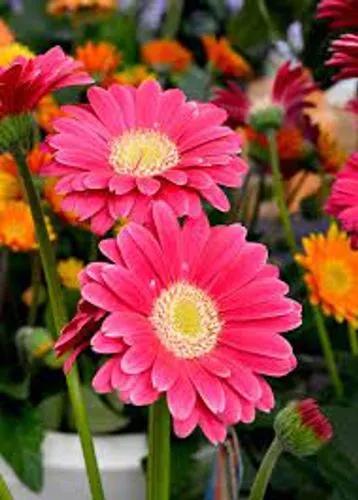This beautiful upright grower brings weeks of color to the potted garden throughout the fall, just when many summer bloomers are finished. The deep, royal blue and white-striped flowers form large clusters at the tips of erect stems in fall and early winter. Not a true ginger, the trick to blooming this delightful species is to prune only at the end of its blooming cycle.
Blue Ginger Care
Dichorisandra Thyrsiflora



How to Care for the Plant

Water

In the summer, it is important to pay attention to the blue ginger on a constant and not too intense soil moisture. In winter, the plant needs a uniform soil moisture, but should be kept in the cold season at a relatively low level.

Pruning

Basically, the blue ginger is very modest in terms of the cut. In general, it is sufficient to remove dried leaves from the plant. Unlike other plants, capping the shoots of Blue Ginger does not lead to a beautiful branching, but rather only to a delayed flowering.

Fertilizer

Blue ginger fertilization should take place from April to September.It is used every seven to 10 days a complete fertilizer, which is available as a liquid product or as a water-soluble powder. The permanent fertilization with chopsticks over the warm season is possible. In winter, you drive back the fertilization of the plant, so that the plant receives only one, a maximum of twice a month additional fertilizer from October to March.

Sunlight

If the blue ginger is to find a place in the summer outdoors, then he prefers a partially shaded location. Overall, the plant is both wind and heat tolerant. However, it should be slowly accustomed to the sun, especially after wintering in the indoor area, and not be placed directly in the blazing spring sun.

Soil

The blue ginger loves when planting a humus rich soil, which may contain coarse-grained fractions - for example, from lavagrus or expanded clay or gravel. With this interspersed substrate is provided for the necessary looseness of the soil of the plant. On peat as a substrate addition should be in favor of more stable humus species.

Temperature

In winter, the blue ginger estimates a bright place and a room temperature of about 15° C, which, however, may fluctuate both upwards and downwards by about 5° C. Under these conditions, the plant will then be rebuilt from April onwards. For a short time, the plant tolerates a minimum temperature of 0° C, when, for example, it was forgotten to relocate from the garden to the interior before a cold autumn night.

Popularity

2,757 people already have this plant 159 people have added this plant to their wishlists
Discover more plants with the list below
Popular articles






